Bitcoin vs Bitcoin Cash...The Great Block Size Debate
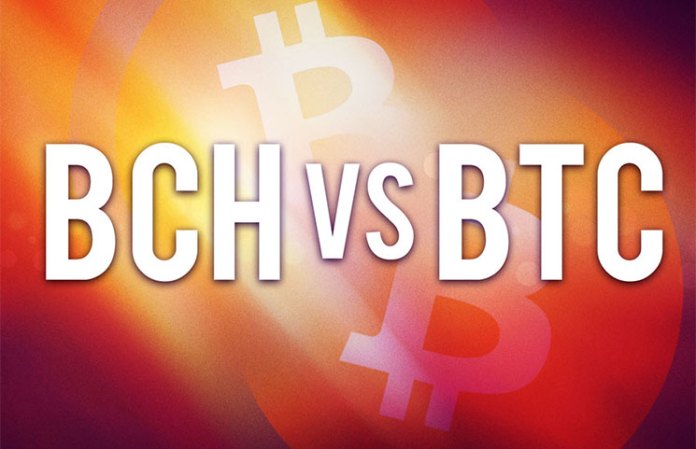
The debate over Bitcoin's block size has gotten heated since the birth of Bitcoin Cash (BCH) in August of last year. While the rivalry between BTC and BCH is less than a year old, the underlying scaling issue has been debated for almost 4 years now. To understand both sides, you have to first understand the main reason Bitcoin was developed. For that, let's go back to Bitcoin’s genesis and identify the problem it was created to solve.
THE PROBLEM
Most people in the crypto community know the name Satoshi Nakamoto. While we know his name, the creator of Bitcoin has managed to remain anonymous. We may not know who this individual is, but most agree he’s a genius. Not just for creating Bitcoin, but for the vision he outlined in his white paper. If I could sum up Nakamoto’s vision in one word, it'd be “FREEDOM”.

Let's take a step back and look at most of the world's financial system today. No matter which country you live in, the value of government currency is at the mercy of politicians. The average citizen has little to no control over how their tax dollars are spent, or how much money their government prints.
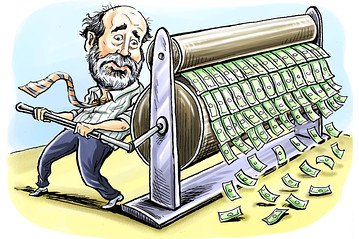
Regardless of where you live, everybody is subjected to a system with which they don’t always agree. The truth is, all nations manipulate their currency. The degree may vary, but all of them do it. Politicians promise the world if you’ll just trust them with your tax dollars. They then waist most of your money on bloated government programs or rewarding their donors. This leaves tax payers with massive debt that’s almost impossible to repay. A 2014 gallop poll revealed Americans say government waists 51% of their tax dollars. In other words, over half of your tax dollars go towards needless and/or corrupt spending practices. Can you imagine running a business that way? You’d be out of business in less than a week. Yet somehow, governments all over the world get away with this year after year.
Source found here: http://news.gallup.com/poll/176102/americans-say-federal-gov-wastes-cents-dollar.aspx
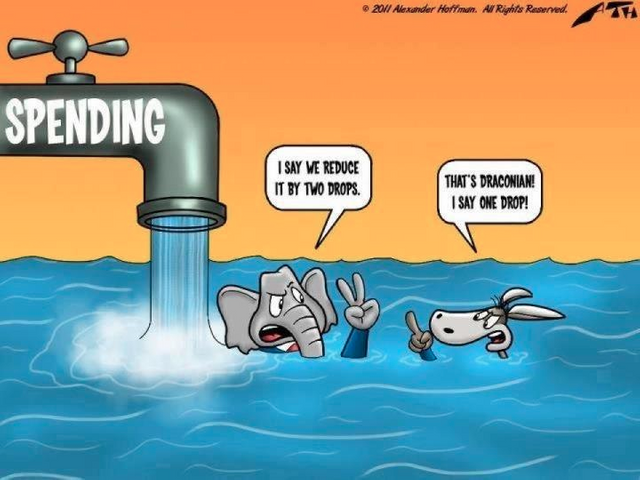
As government debt increases, eventually there’s not enough tax revenue to pay it back. So what do these “wise” politicians do? They print more money in order to inflate away the national debt…and this happens over and over again. Why is this a problem? Because the more money that's printed, the less YOUR MONEY is actually worth.
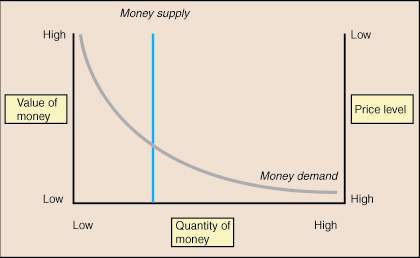
This is most obvious in nations like Venezuela where hyperinflation has exploded over 440,000%. In the US, the national debt has risen over 100% in the last decade. The federal reserve keeps printing money to keep up with out of control government spending. This is true in most countries today. At this rate, many government currencies will soon not be worth the paper they're printed on.
https://www.bloomberg.com/news/articles/2018-01-18/venezuelan-hyperinflation-explodes-soaring-over-440-000-percent
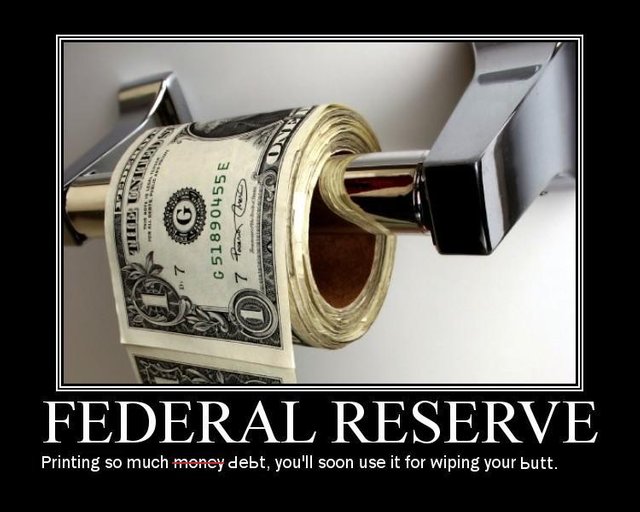
So how does Satoshi Nakamoto’s vision free us from government corruption and mismanagement? It creates an open source, digital currency that’s controlled by EVERYONE…and therefore NO ONE. It goes even further by limiting the number of Bitcoin that can ever be created to 21 million. That means a currency free from government corruption and inflation. A currency that’s, in a word, DECENTRALIZED. This is the most important part of Satoshi Nakamoto’s vision. In my opinion, Decentralization is what gives Bitcoin most of its value. Like gold, Bitcoin gives people a place to invest their money as a hedge against inflation, government mismanagement. It also gives people the freedom to send money to who they want, when they want. You no longer need to go through a middle man (banks) to access your wealth. Furthermore, no one person can change Bitcoin’s core structure. Bitcoin has no CEO and its code is completely transparent (open source). You can clearly see why anything threatening the decentralization of Bitcoin would be a direct threat to Bitcoin itself. If power over Bitcoin is shifted away from the masses and into the hands of a few, its true value will disappear.
So how does this all fit into the war between Bitcoin and Bitcoin Cash? To understand both sides, you've got to understand the 2 different solutions to scaling.
THE GREAT SCALING DEBATE
We all know bitcoin has a scaling issue. It has for some time now. Transaction time and fees reached all time highs at the end of December, 2017. Everyone agreed something needed to be done. The question was...what? Should scaling take place on chain or off?
Scaling off chain is difficult, expensive and extremely time consuming. The easiest, and most obvious choice was to scale on chain by increasing the block size. While that seemed simple enough, critics argued a bigger block size would lead to CENTRALIZATION. If that’s true, increasing the block size should NOT be an option…at least not if you believe in Satoshi Nakamoto’s vision.
So, does a bigger block size lead to a more centralized currency? That’s a question that DEMANDS an answer….

Many experts expressed concern that increasing Bitcoin's block size would lead to centralization. This concern was for a number of reasons, but the main argument can be summarized like this….
Each block added would add 1 MB. To ensure decentralization, we need as many people as possible to run a full node. However, to run a full node, you’d need to have the entire blockchain on your computer. Increasing the block size means the blockchain get's larger and faster. 8 MB blocks would make it 8 times larger and 8 times faster. The larger the blockchain, the less people will be able to have the entire blockchain on their computer. This would lead to less people being able to run a node, which leads to more centralization. Looking down the road…after 8 MB, they'll eventually need 16 MB blocks. After that they'll need 32 and so on. Eventually only the rich and powerful would be able to run a node and therefore only the rich and powerful would control Bitcoin. That was the argument against increasing block size in a nut shell.
This logic was challenged in 2015 when a long time Bitcoin contributor, Roger Ver, defended the idea of bigger blocks to solve the Bitcoin scaling issue. He himself stated that if larger blocks led to more centralization, he’d be against it. Ver stated, “Currently, many people seem to be under the false impression that bigger blocks mean fewer full nodes on the Bitcoin network, leading to more centralization, and a higher likelihood of governments being able to subvert, censor, or otherwise control Bitcoin. If this were true, I would certainly oppose any increase to the block size, but I think this is clearly wrong for several reasons.”
In January of 2017, Ver republished an article on his website stating he was being “censored”. In the article, he argues that not only does bigger blocks NOT lead to centralization, it’d actually led to more decentralization. This seemed to contradict most expert opinions.
Ver argued, “Bigger blocks will likely mean more full nodes around the world, and therefore more decentralization, not less. This will make Bitcoin even more difficult to control, censor, or be stopped by anyone, including governments.” He went on saying, "Currently a very modest internet connection, available in most of the world, can easily support blocks more than one hundred times what is in use today. A $100 USD hard drive would take the better part of a century worth of full blocks to fill up at the current block size limit. Clearly, bandwidth and storage are not limiting factors to increasing the block size. Moore’s law will continue to make these factors even less of an issue in the future. Currently, there are about 6,000 full nodes running on the bitcoin network, with a rough estimate of 6,000,000 Bitcoin users. That means about 0.1% of Bitcoin users bother to run a full node. I think it's a fair assumption that most of these 6,000 people, myself among them, are running full nodes simply because they are interested in Bitcoin, and it is likely that this percentage will not change more than an order of magnitude into the future."
Full article found here: https://news.bitcoin.com/bigger-blocks-mean-more-decentralization-update/
Ver’s argument was somewhat logical on its face. Regardless, it was highly speculative and, as stated, in direct opposition to most expert opinions. What seemed odd was Ver's passionate tone. He wouldn't even entertain the thought of being wrong, even when confronted with sound counter arguments. It seemed personal to Ver. Since Bitcoin is not run by any one person, many couldn’t figure out why he was so admit about his position. The reason soon became obvious.
In May of 2017, Roger Ver announced he was preparing to launch a new currency, Bitcoin Cash. Obviously he had a strong financial incentive behind his argument. He needed people to believe larger blocks were the answer to scaling. This was key to the success of Bitcoin Cash. That said, just because Ver had financial incentive did not mean he was wrong. More research was needed...and so, the battle between Bitcoin and Bitcoin Cash began.
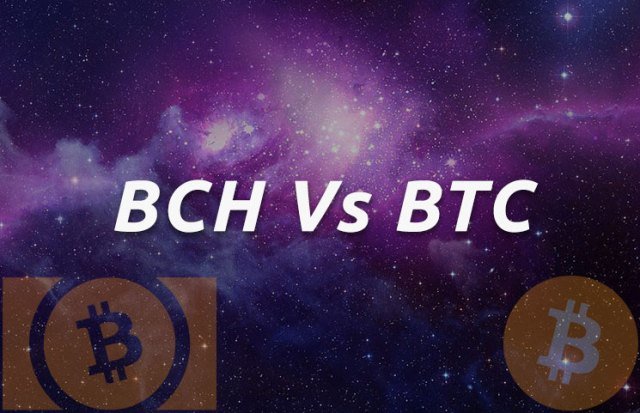
By October of 2017, the Bitcoin community was split. To increase block size or not to increase block size, that was the question. Everyone had their talking points on both sides of the argument. While Roger Ver’s argument theoretically made sense, it was obvious that Bitcoin Cash was being controlled by 1 man, Roger Ver. This was the very definition of centralization, but the irony seemed lost on the Bitcoin Cash community.
As time went on, Ver continued to get more and more frustrated with any criticism of Bitcoin Cash. In a November 2017 interview, he got upset because the interviewer referred to Bitcoin Cash as “B-Cash”. Ver responded by bragging about how much money he’d made, suggesting his money gave him credibility. He went on suggesting that because the interviewer didn’t make as much money, his arguments weren’t valid. The interview went for about 50 minutes before Ver finally got upset and abruptly ended it.
Here’s a clip:
In the interest of transparency, I’m also providing a link to the full interview here:
THE STUDY
By the beginning of 2018, after all the in fighting, the community still had no hard evidence on whether or not larger blocks led to centralization. It was still all speculation. The lines in the sand had been drawn. Bitcoin was not increasing it’s block size, instead opting to scale off chain with the Lightening Network. Bitcoin Cash was going to continue scaling by increasing block size as needed. Bitcoin developers still maintained larger blocks would lead to centralization. Bitcoin Cash developers continued to deny this, stating larger blocks would not lead to centralization. Both sides were firm in their positions, even though no formal study had been conducted.
Enter Microsoft:

About this time, Microsoft made public it’s interest in blockchain technology to create a decentralized identity system. Microsoft announced they were in the process of concluding a year long blockchain research study. The study focused on how to scale blockchain without compromising the decentralizing properties that make the tech so valuable. The study focused on the effects of scaling on chain (increasing block size), as well as scaling off chain with networks like Lighting. For obvious reasons, the final conclusion to this study became highly anticipated within the Bitcoin community. All the speculation was about to come to an end. If increasing block size did NOT lead to centralization, then the Bitcoin Core team was not only wrong, they were waisting millions on developing off chain scaling solutions. However, if it was proven that block size increases did lead to centralization, Roger Ver, and many Bitcoin Cash supporters, would be forced to admit they were not only wrong, but that their coin is, or will eventually be, centralized.
Microsoft finally released the results of this year long study in February.
Without further ado, the verdict is….


THE VERDICT
On February 12th, Microsoft Identity Division researcher Ankur Patel released a statement saying, “Several public blockchains, including Bitcoin, Ethereum, and Litecoin, provide a solid foundation for creating and securing decentralized digital identities (DIDs). However, while some blockchain communities have increased on-chain transaction capacity (e.g. blocksize increases), this approach generally degrades the decentralized state of the network and cannot reach the millions of transactions per second the system would generate at world-scale.” Patel went on, “To overcome these technical barriers, we are collaborating on decentralized Layer 2 protocols that run atop these public blockchains to achieve global scale, while preserving the attributes of a world class DID system.”
Numerous articles highlighting these findings can be found. Here's just a few:
http://bitcoinist.com/farewell-bitcoin-cash-microsoft-chain-scaling-degrades-decentralization/ https://www.forbes.com/sites/ktorpey/2018/02/12/microsoft-to-embrace-decentralized-identity-systems-built-on-bitcoin-and-other-blockchains/2/#2ff8d34391b6
https://www.ccn.com/public-blockchain-chain-scaling-degrades-decentralization-microsoft-researcher/
https://cloudblogs.microsoft.com/enterprisemobility/2018/02/12/decentralized-digital-identities-and-blockchain-the-future-as-we-see-it/
https://hype.codes/microsofwt-chain-scaling-fails-meet-capacity-needs?page=12
In other words…block size increases lead to centralization. These findings clearly vindicated the position of Bitcoin developers while COMPLETELY contradicting the claims of Roger Ver and Bitcoin Cash.
The debate was over. Larger blocks lead to centralization. PERIOD
THE RESPONSE FROM ROGER VER AND BITCOIN CASH:
( )
)
 !
!

THE RESPONSE FROM BITCOIN:



IN CONCLUSION
Now that we have firm evidence showing larger blocks lead to centralization, I can't help but remember Roger Ver’s earlier statement,
“…many people seem to be under the false impression that bigger blocks mean fewer full nodes on the Bitcoin network, leading to more centralization, and a higher likelihood of governments being able to subvert, censor, or otherwise control Bitcoin. If this were true, I would certainly oppose any increase to the block size….”.
I wonder if Mr. Ver still stands by that statement. Given that we now know block size increases do lead to centralization, should we expect Roger Ver to come out and apologize to the Bitcoin (BTC) community? Should we expect him to stop increasing the Bitcoin Cash (BCH) block size? Or, at the very least, should we expect him to continue increasing the block size of Bitcoin Cash (BCH), but admit it’s becoming a more and more CENTRALIZED currency?
What do you think the chances are Roger Ver will apologize and admit he was wrong?

I’d say 0%...but, unlike Mr. Ver, I'd love to be proven wrong.
THE END

I hope this has been helpful. If you enjoyed this article, please let me know by clicking the up-vote tab below. By up-voting my post, it says you'd like me to continue posting cryptocurrency analysis. If you didn’t enjoy this article, let me know how I can improve and earn your vote in the future.
If you don’t have an account on Binance, I STRONGLY recommend getting one. They’re usually the first to get reputable coins, have excellent security and second to none customer service. You can sign up here for free: https://www.binance.com/?ref=16878853
Please also consider following me. I’ll do my best to support my followers and their posts. If you have a coin you’d like me to analyze, let me know. I’ll do my best to accommodate as many requests as possible.
Thank you for your continued support. My goal is to make 2018 as profitable for you as possible. Together, let's crush it!
Disclaimer: I am NOT a financial advisor and this is NOT financial advice. Please always do your own research and invest responsibly.
#crypto #life #steemit #steem #blog #news #bitcoin #cryptocurrency #investing #eos #finance #btc #ethereum #litecoin #ripple
Resteemed your post to my 1,610+ active followers. To get free resteem follow @anupbose
Upvoted by BlogBooster!
Nice summary of the situation.
The Lightning Network, currently in its infancy, already has more full nodes than Bitcoin Cash has. That says it all.
Thanks.
I really enjoyed that very informative AND entertaining post, keep it up!
Thanks. Glad you enjoyed it.
Coins mentioned in post:
I resteemed your post to my followers.
To get free resteem follow @cryptli
CONGRATULATIONS YOUR PUBLICATION HAS BEEN SHARED BY @Untapentuoreja, will be seen by 2903 steemians.
Thank you for participating in our Free Upvote(s) + Resteem Competition.
You have been upvoted by @rentmoney.
Click here to visit the winners topic
Congratulations your post has free resteem by@mrsatish
Thanks for using our service, please share your post in the group to make us be sure about what to upvote and to have more visibility for this post, we will upvote all when we hit 100% voting power : Steemit for Resteem ↕. I will approve your post when you share it.